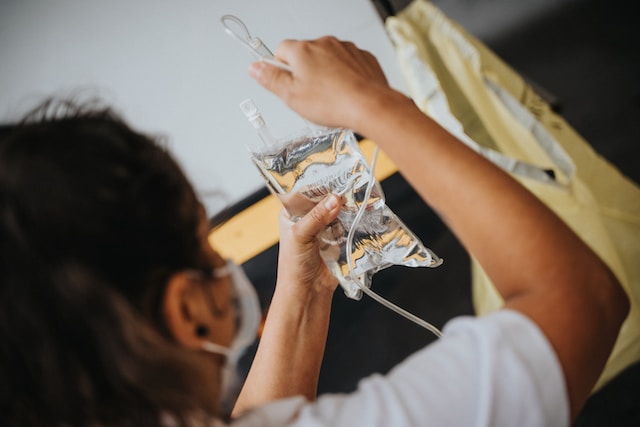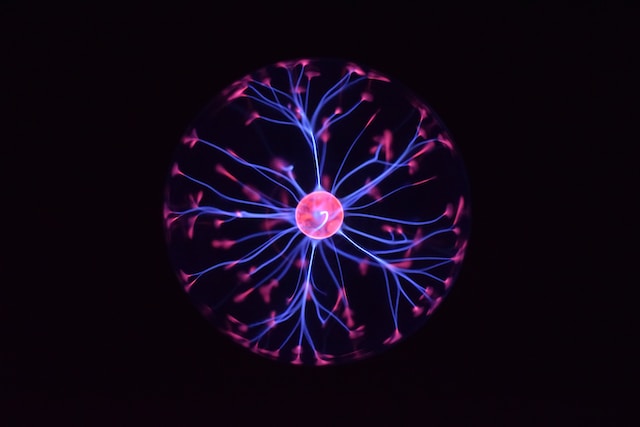When asked if she thinks the handful of companies offering cryonic preservation should be set up for profit, the General Director of KrioRus, Valeriya Udalova, gave a very clear answer – a firm ‘no’…but only for the time being!
“I believe all cryonics organisations should be non-profit at the moment,” says the woman who has led one of the biggest cryonics providers since 2009. “The core activity of cryonics should not be for profit, though related services such as preserving DNA or temporary preservation could be done on a commercial basis.”
Udalova, whose company is based in Moscow, has a few reasons for this particular reasoning:
“First, the purpose of a commercial company is profit. In cryonics, however, the idea is the main thing. And when a company is commercial, the owners won’t always care about the idea — they’ll put profit first. This can lead to terrible consequences and hinder the development of cryonics. We’ve already seen this happen in the past.”
“Secondly, for-profit companies can issue shares, effectively cutting the company into small pieces for investors. Again, most investors will only care about money, not cryonics as a concept.”
These are not surprising opinions for somebody working in an industry whose very existence depends on a steadfast optimism and a rock-solid belief in the bigger dream. It’s a common line amongst ‘futuristic’ entrepreneurs. More interesting are the down-to-earth business reasons she gives for advocating a non-profit approach.
“Every commercial company must have a production cycle. In cryonics, this cycle is not yet complete because the revival of patients isn’t possible. And we don’t know when that will be. Perhaps 50 years, or even longer. Without this, you cannot calculate business parameters, key performance indicators or any figures for investors.”
For Udalova, though, the key word is ‘yet’. If and when that production circle closes – in other words, when revival is proved to be more than just a dream – then the notion of a profitable business model would make sense. Likewise, if ‘the idea’ eventually becomes a reality, people driven by money might be viewed with less suspicion. Their investment cash would likely be welcome.
“In the future, I believe there will be many commercial cryonics companies — lots of them!”
Investing in the cryonics dream
Although the KrioRus’s leader doesn’t believe in cryonics for profit at this point in time, the firm is officially set up as a limited liability company, which feels a bit hypocritical.
However, according to Udalova, founding a non-profit company in Russia comes with complications that cryonics organisations in countries such as the USA don’t have to contend with. KrioRus’s commercial designation is a case of bureaucratic pragmatism. In practice, the money the company makes from its hyper-chilled patients is invested into ‘the idea’.
“Our aim is to bring people back to life. It always has been and always will be. The money paid by patients is distributed much like in any other small commercial company — it goes towards our very modest salaries and technological costs such as liquid nitrogen and dry ice.”
The General Director adds that at present, the money is also being used to fund the much-improved facility KrioRus is building in Tver, located between Moscow and St Petersburg.
Incomings, outgoings and price points
There might not be any shareholders to pay, but there’s no such thing as too much income if you’re chasing a goal as grand as immortality. Whatever clients are prepared to pay, can certainly be spent.
Considering the company has been operating since 2006 and continues to expand on several fronts, KrioRus has evidently found a price point that sustains its work. At the time of writing, KrioRus has 81 individuals cryopreserved, either full body or brain only (neuropreservation). The current price is $36,000 for full-body cryopreservation or $18,000 for neuropreservation.
Unsurprisingly, indefinite preservation is a costly business, and reducing expenses is an important part of keeping the whole thing afloat on a lasting basis. For KrioRus, liquid nitrogen is the major fund-guzzler to be dealt with.
“Storage is expensive because you need a constant flow of liquid nitrogen,” explains Udalova. “We’re working on producing that ourselves, which will reduce our nitrogen costs tenfold.”
When asked if the price of cryopreservation at KrioRus would soon tumble, Udlova insisted “No! We need to keep researching to stay ahead of current technology and ensure quality. For this, you always need money. Whatever is saved will go towards this.”
Moreover, Udalova disagrees in principle with the idea of a ‘cheap deal’ or economies of scale when it comes to cryonics.
“If you want to be immortal then you have to work for it. It has to be something you struggle for. Take for example the recent client who sold his very expensive cars in order to preserve his father. This is the choice people will face: do they want shiny, useless things like cars and new clothes, or would they rather see the future and have the chance to be greater than they are now? Or perhaps even see their relatives again Cryonics is not a cheap thing. And it won’t become cheap in the way so many consumer products do.”
New ways to pay
Just because KrioRus isn’t planning to slash prices doesn’t mean it can’t offer creative ways to pay ‘the bill of a lifetime’. Like any business that has been around long enough to get a feel for the market, it is starting to frame the value proposition in new ways for different segments.
One such example is its own ‘insurance’ option, where younger patients can pay as little as $50 per month for guaranteed cryopreservation.
“For younger people, it’s often easier to pay small monthly amounts,” explains Udalova. “And even if you have made one payment and then die, we are obliged to preserve you.”
That’s a risk the company is willing to take, but like any insurance scheme, it will be balanced out by those who live longer and keep paying over the course of their lifetime. Over time, the latter group would pay more than the one-off fee.
For older patients, the up-front payment still makes the most sense from KrioRus’s perspective. For those who can’t manage to pay the one-off fee, there is a credit model, with installments paid off over a short time period of just one or two years. This, however, involves a lot of legal work to verify estates and wills in the event the patient dies in debt, particularly where the individual is non-Russian. Increasing reluctance to deal with this was one of the factors that led to the development of the above-mentioned insurance alternative.
European Expansion
If and when the time comes to make a profit from cryonics, KrioRus looks set to be well-positioned on its side of the Atlantic. While at present there is no competition in Europe, standing still doesn’t seem to be on the agenda for Udalova and her team.
In addition to the new Tver facility, which Udalova says will “take KrioRus to the next level and allow us to conduct our own experiments”, the company is working to grow its network of partners across Europe. With cryonics requiring swift action after death, patients far from Russia can only effectively be taken on if KrioRus has a competent partner in their area.
For obvious reasons, Udalova also has her eye on Switzerland. Along with two locals, she has already founded KrioRus Switzerland, which will begin its activities in earnest some time after Tver is completed.
“In Switzerland, where euthanasia is legal, we could work with clients who want to be euthanized and then cryopreserved,” she says.
That would clearly add a level of certainty and control to any future business model. But how would it all play out? Patience is the watchword…for now.















